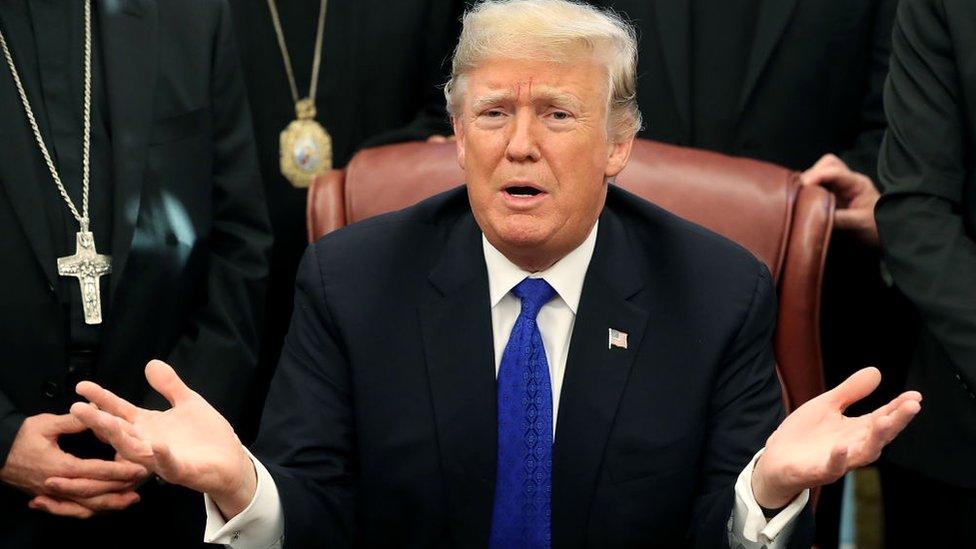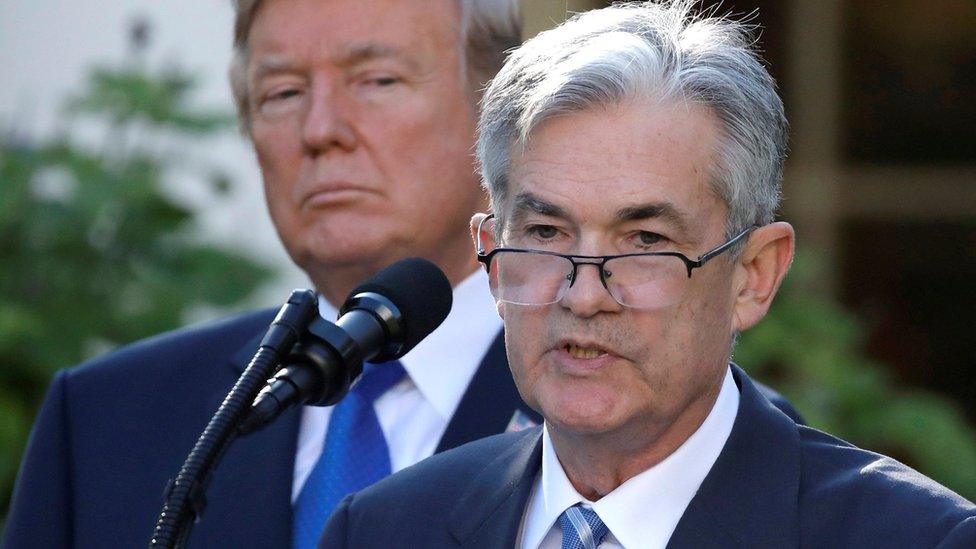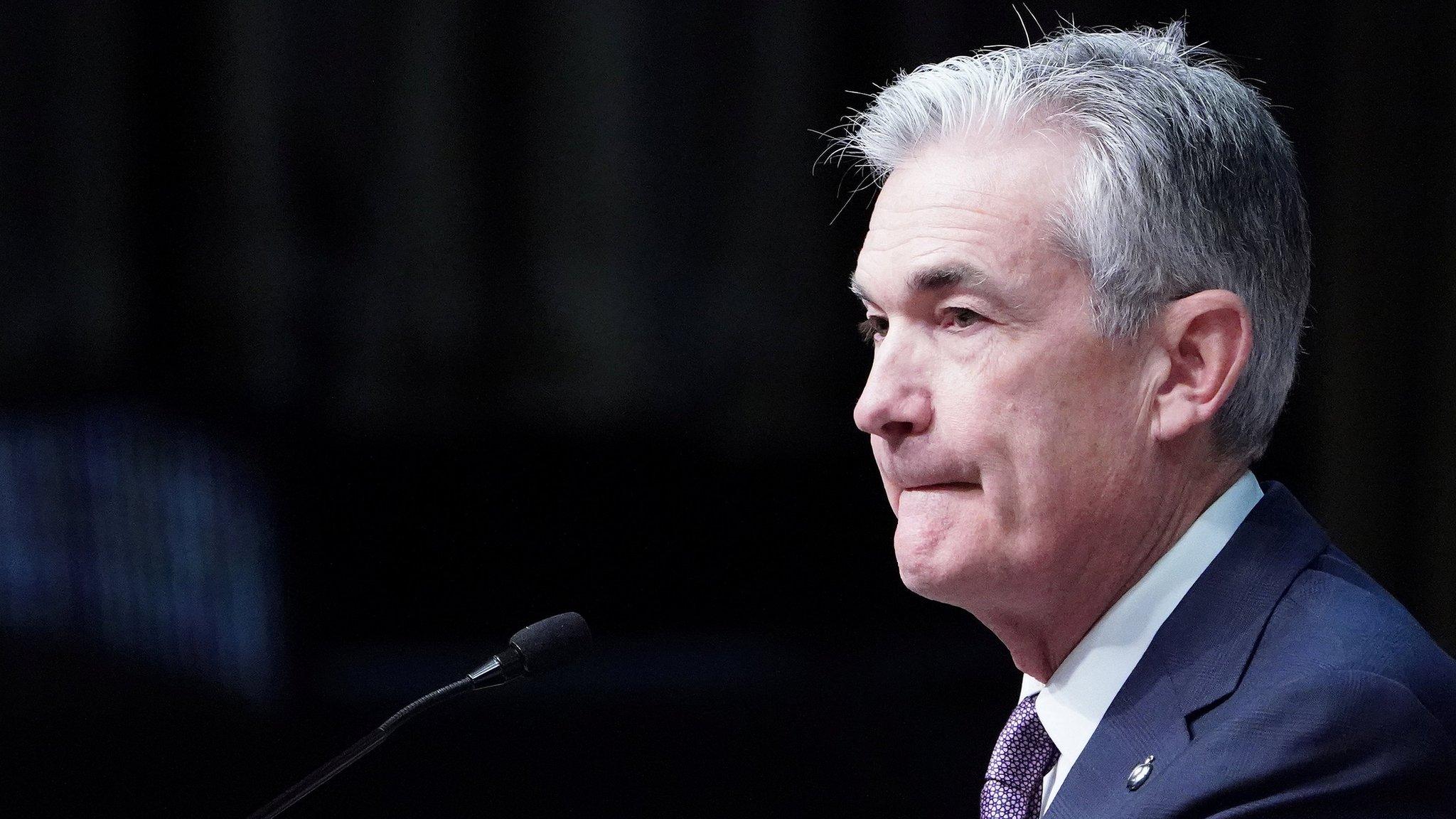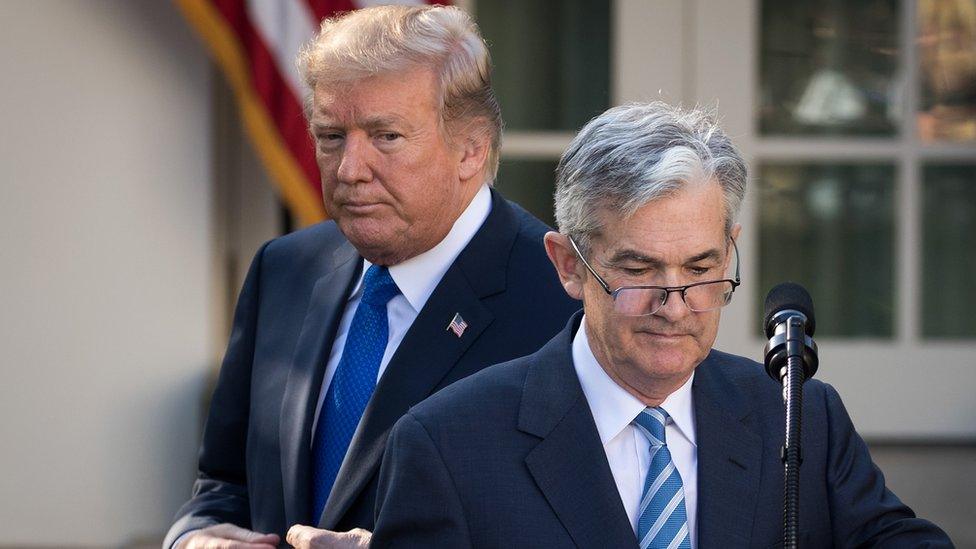Trump warns US Fed against making 'yet another mistake'
- Published

US President Donald Trump has stepped up his pressure on the Federal Reserve by warning the central bank against making "yet another mistake".
The Fed is widely expected to announce an interest rate rise - its fourth in a year - on Wednesday.
But with financial markets in turmoil and fears of recession growing, some critics are questioning the plan.
In a tweet, President Trump advised the Fed to "feel the market" and not to "just go by meaningless numbers".
His remarks bring unprecedented pressure on the central bank as policymakers meet in Washington for a two-day meeting.
Presidents generally avoid criticising the Fed publicly, for fear of politicising the institution and undermining confidence in its decisions.
However, Mr Trump - who appointed the Fed's chairman Jerome Powell - has repeatedly blamed the central bank for unsettled markets and dismissed analysts who cite other factors, such as rising trade tariffs.
On Monday, he wrote that it was "incredible" that the bank was considering a rate rise, before telling the Fed on Tuesday to read an editorial in the Wall Street Journal "before they make yet another mistake".
Allow X content?
This article contains content provided by X. We ask for your permission before anything is loaded, as they may be using cookies and other technologies. You may want to read X’s cookie policy, external and privacy policy, external before accepting. To view this content choose ‘accept and continue’.
Fed plans
The Fed has said the US economy is healthy enough that the ultra-low rates put in place during the financial crisis are no longer necessary.
It has raised the rate eight times since 2015, most recently in September, when it increased the target range to 2% to 2.25%.
It is also removing stimulus by reducing its portfolio of Treasuries and mortgage-backed securities, which were purchased in response to the financial crisis.
Analysts said they expect the Fed to move ahead with a rate rise at this week's meeting, but its plans for next year are less certain.

Mr Trump appointed Mr Powell as Fed chair last year. The president has said he is not happy with his pick

Counter-productive criticism?
Analysis by Michelle Fleury
Ten years after the financial crisis, the US economy is chugging along nicely.
President Trump has bragged in the past that he's responsible for the economy taking off like a "rocket ship".
But perhaps the real credit should go to America's central bank and the policy actions it took to support the economy when it was extremely fragile.
So why is Trump calling the US Federal Reserve "crazy"? Why is he urging it not make "another mistake" by raising interest rates to keep inflation in check at its policy meeting on Wednesday?
Interest rates can act as a brake on inflation. But they can also slow the economy. Or worse still, cause a recession. For a President who likes to boast about his ability to create jobs, this might make that task a lot harder. It could also impact his re-election chances in 2020.
And his comments aren't just a break from tradition. They may also be counter-productive.
Federal Reserve chairman Jerome Powell may feel he has to stick to his guns to avoid any appearance of undue presidential influence.

The press conference with Mr Powell will be "particularly important", economists at Goldman Sachs said.
"We expect Powell will clear the air, acknowledging some softening in the growth outlook but also highlighting data dependence. This would likely ease near-term financial stresses, but it would also preserve [options] in the event that growth stabilizes or inflation rebounds."
At prior meetings, Mr Powell has emphasised near record low unemployment rates as well as inflation, which is around the Fed's 2% target.
Ken Matheny, executive director at Macroeconomic Advisers by IHS Markit, says he expects Mr Powell to emphasise that any decisions will respond to incoming data - not the president or other critics.
"Appearing to respond to jaw-boning is something the Fed would like to avoid," he said.
- Published28 November 2018

- Published24 October 2018
